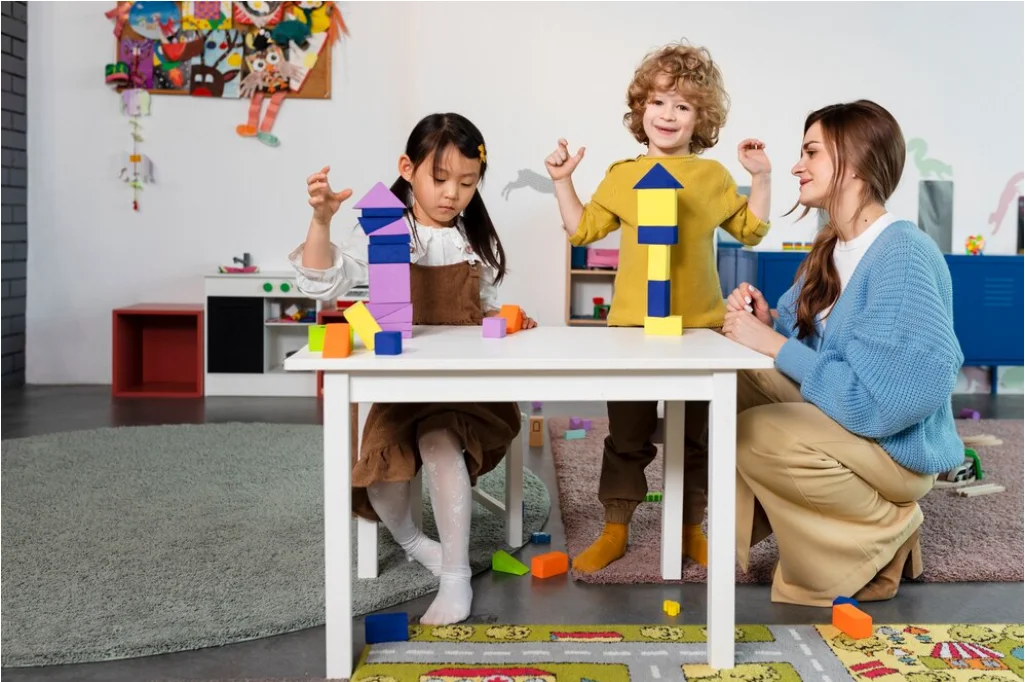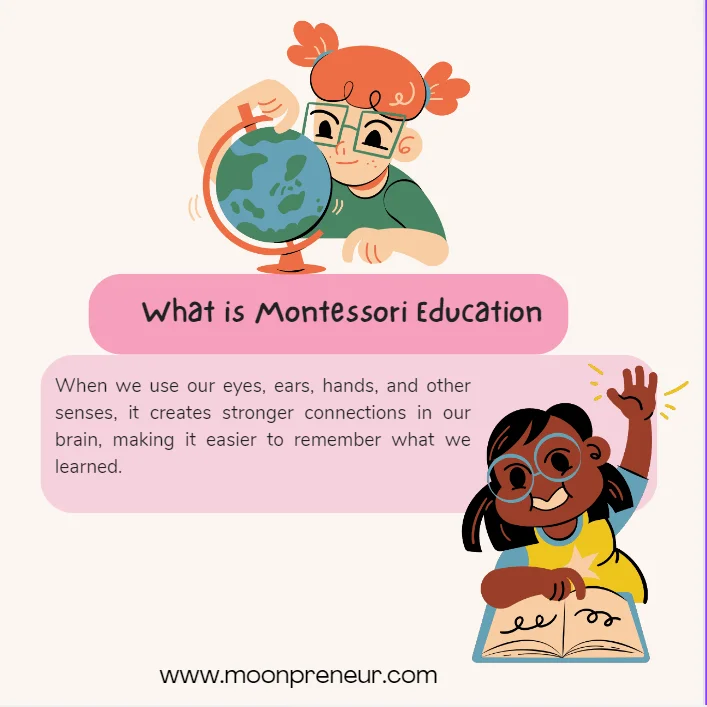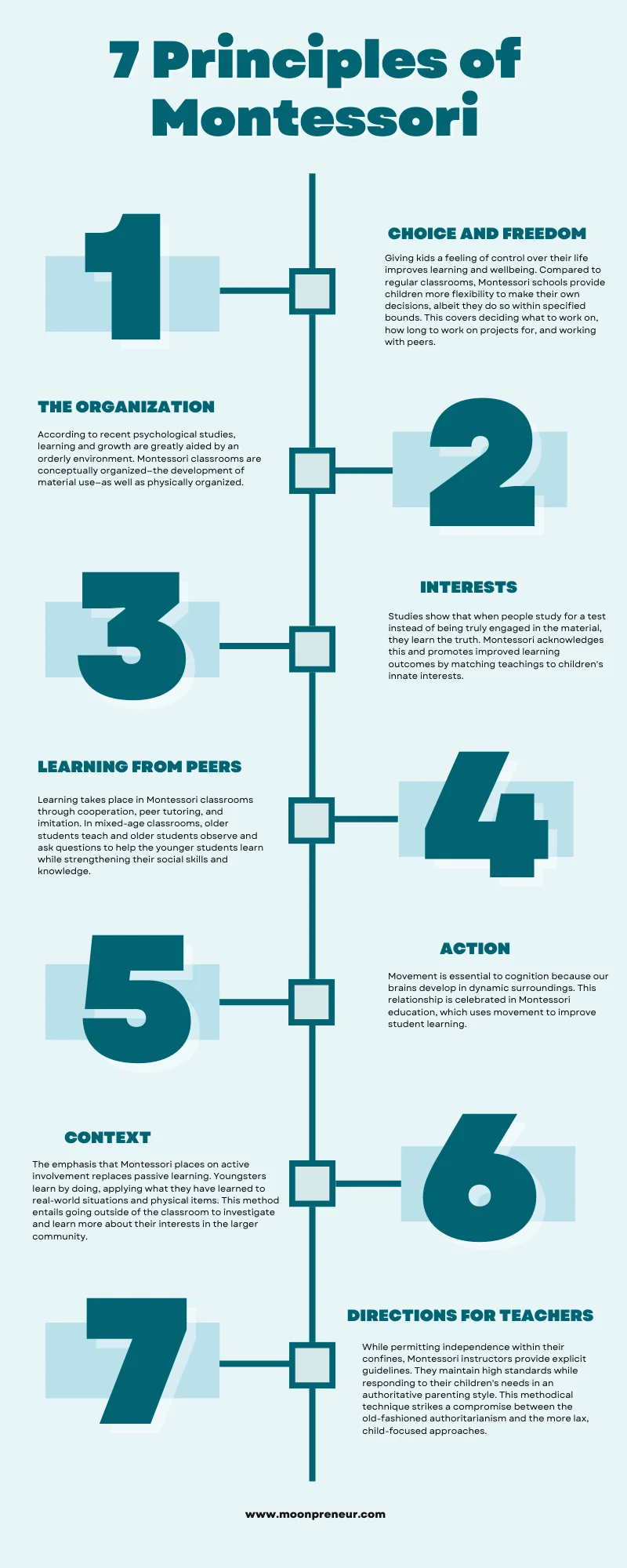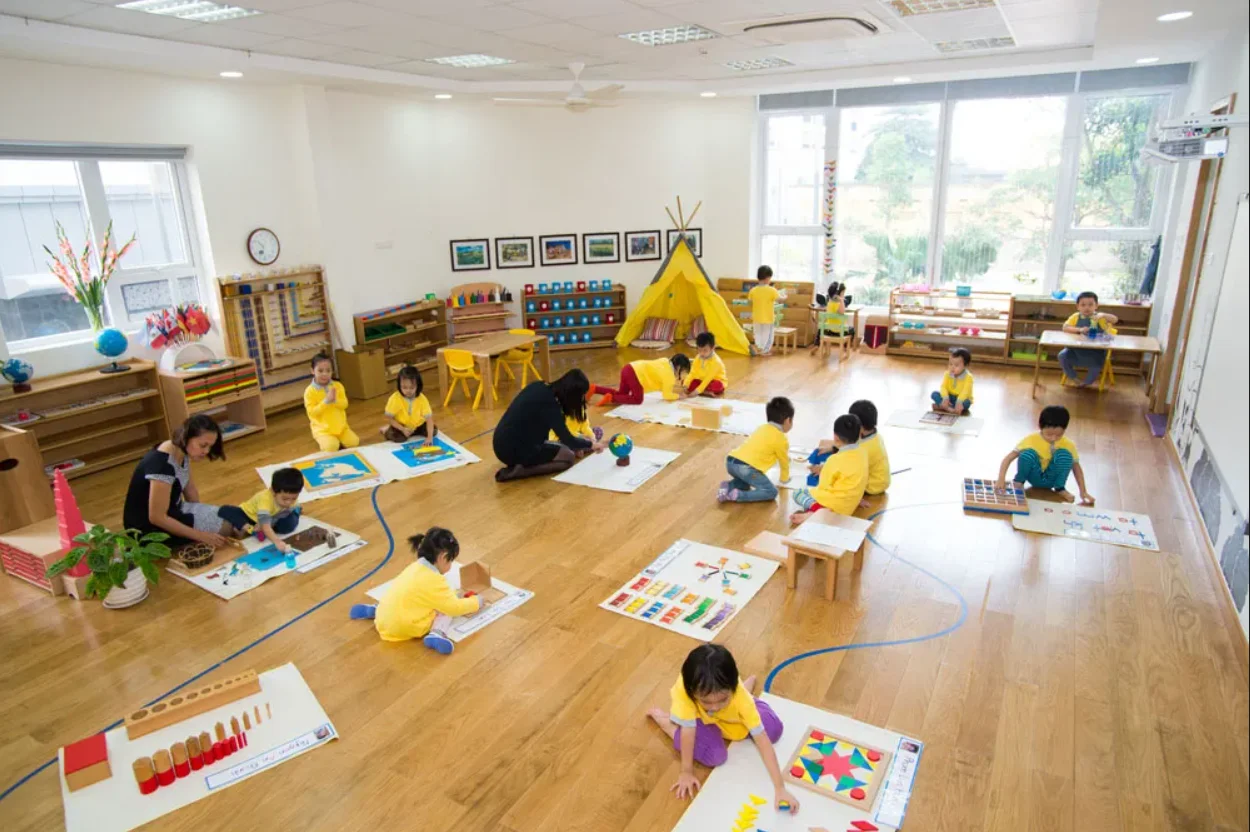
In today’s ever-changing classroom landscape, traditional methods of teaching often fall short of meeting the individual needs of each child. That’s where the child-centered approach that Montessori stands for comes into play. Developed by Dr. Maria Montessori, the Montessori approach promotes self-reliance, curiosity, and a love of learning.
Montessori classrooms promote holistic growth. They create an environment where every child feels like he or she belongs. In addition to helping children achieve academic success, a Montessori teacher acts as a mentor, taking each child’s journey on a one-on-one basis. This model sets the tone for an inclusive education that prepares children for lifelong learning-not just grades.
What is Montessori Education?

Montessori puts students at the center of learning. Classrooms are tailored to specific age groups. Children learn by doing, exploring subjects like social studies, science, math, and music.
Under the guidance of experienced teachers, Montessori children have the freedom to choose activities that are appropriate for their age group. The innovative approach encourages group interaction as much as individual exploration, resulting in an in-depth understanding of a wide range of subjects.
Because Montessori materials are based on a child’s natural interests and allow them to learn at their own pace, they play an important role in fostering complete child development.
Maria Montessori founded the Association Montessori Internationale (AMI), which continues to work with modern research while maintaining her vision. Montessori Northwest is an accredited AMI teacher training center specializing in educating teachers of students from birth to 12 years old.
Recommended Reading: 5 BEST PRIVATE ELEMENTARY SCHOOLS IN SAN DIEGO

Montessori Educational Stages:
Infant/Toddler (Birth to 3 Years)
- Provide a safe, engaging, and nurturing environment.
- Foster trust and confidence in emerging abilities.
- Develop motor skills and language skills.
- Encourage independence in daily tasks.
Primary (3 to 6 Years)
- Foster functional independence, task persistence, and self-regulation.
- Promote social development through clear communication and natural consequences.
- Offer a variety of materials for sensory perception, literacy, and mathematics.
- Encourage imaginative exploration leading to confident, creative self-expression.
Elementary (6 to 12 Years)
- Support collaborative intellectual exploration guided by children’s interests.
- Foster self-confidence, imagination, intellectual independence, and community understanding.
Recommended Reading: BEST 20 ANIME QUOTES FOR KIDS
Adolescence (12 to 18 Years)
- Engage adolescents in working farm or non-farm environments, promoting economic interdependence.
- Facilitate understanding of oneself in broader contexts.
- Provide a context for the practical application of academics.
- Emphasize self-expression, self-reliance, and interpersonal agility.
Here are some of the key benefits of Montessori education

1. Fosters Independence and Self-assurance
In Montessori classrooms, children have the freedom to choose their activities and work independently. This helps them become more confident in their ability to learn new skills and solve problems by themselves.
2. Develop critical thinking and problem-solving abilities
Montessori tasks are frequently open-ended, encouraging kids to think critically and creatively. This helps them develop strong problem-solving skills, which are valuable in many areas of life.
3. Provides Joy of learning
Encouraging children to pursue their interests at their own pace lays the foundation for a lifelong love of learning.
4. Improves collaboration and social skills
Mixed-age Montessori classrooms allow kids of different ages to study and play together; this learning environment promotes social skills, collaboration, and cooperation.
5. Strengthens attention and concentration
Self-directed education calls for children to focus on one activity at a time. This strengthens their attention and concentration power, which they will require in every aspect of life.
6. Future success
Critical thinking, creativity, problem-solving, and teamwork are among the vital skills that a Montessori education inculcates in children. These abilities are essential for success in the workplace, in school, and life in general.
7. Fosters compassion and empathy
Montessori education places a great emphasis on respect for every person, which helps children develop strong compassion and empathy.
8. Builds a solid foundation for future learning
It also equips kids with the skills they need to succeed academically in the future and prepares them for standard school environments.
9. Promotes self-control and accountability
Kids are expected to behave responsibly and obey rules, which fosters self-control and accountability.
10. Individualized learning
To ensure that every child has a successful education, a Montessori education adapts instruction to each child’s particular requirements and learning preferences.
In a nutshell, Montessori education is a shining example of inclusive, kid-centered education that lays the groundwork for both all-around growth and a passion for learning that lasts a lifetime.
Moonpreneur is dedicated to transforming conventional education, preparing the next generation with comprehensive learning experiences. Our Innovator Program equips students with vital skills in AI/ML, Robotics, Coding, Game Development, and App Development, fostering entrepreneurship through hands-on learning. This initiative aims to cultivate the workforce of tomorrow by integrating innovative technologies and practical skills in school curriculums.
Register for a 60-minute free workshop today!
























